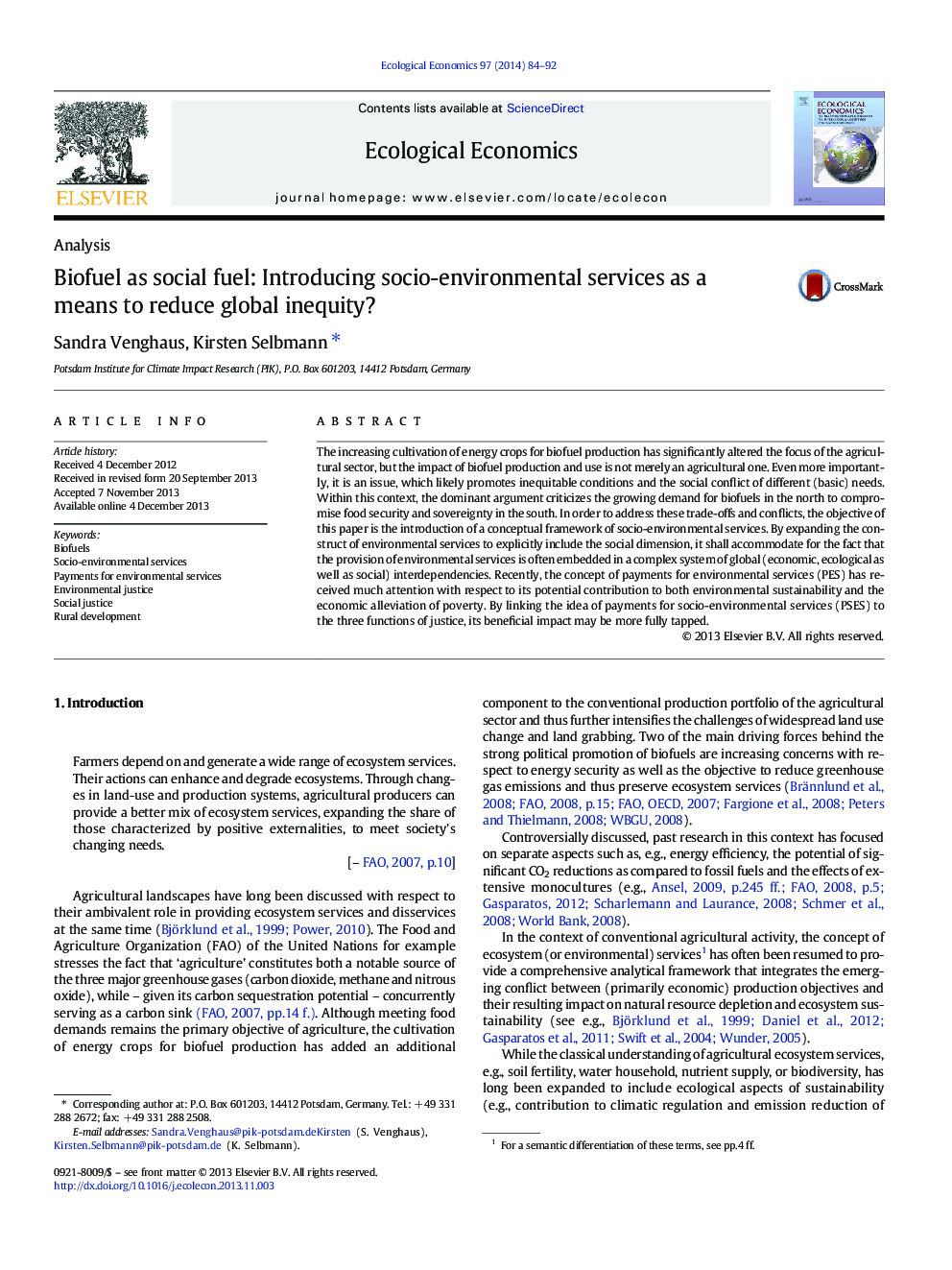| Article ID | Journal | Published Year | Pages | File Type |
|---|---|---|---|---|
| 5049810 | Ecological Economics | 2014 | 9 Pages |
â¢Framework to analyze complex human-environment interactions in biofuel productionâ¢Impacts on, e.g., ecological stability, rural livelihood, employment, and food securityâ¢Introduction of the construct of socio-environmental servicesâ¢Global procedural, distributive and compensative justice as philosophical fundamentâ¢Payments for socio-environmental services as a means to reduce global inequity?
The increasing cultivation of energy crops for biofuel production has significantly altered the focus of the agricultural sector, but the impact of biofuel production and use is not merely an agricultural one. Even more importantly, it is an issue, which likely promotes inequitable conditions and the social conflict of different (basic) needs. Within this context, the dominant argument criticizes the growing demand for biofuels in the north to compromise food security and sovereignty in the south. In order to address these trade-offs and conflicts, the objective of this paper is the introduction of a conceptual framework of socio-environmental services. By expanding the construct of environmental services to explicitly include the social dimension, it shall accommodate for the fact that the provision of environmental services is often embedded in a complex system of global (economic, ecological as well as social) interdependencies. Recently, the concept of payments for environmental services (PES) has received much attention with respect to its potential contribution to both environmental sustainability and the economic alleviation of poverty. By linking the idea of payments for socio-environmental services (PSES) to the three functions of justice, its beneficial impact may be more fully tapped.
